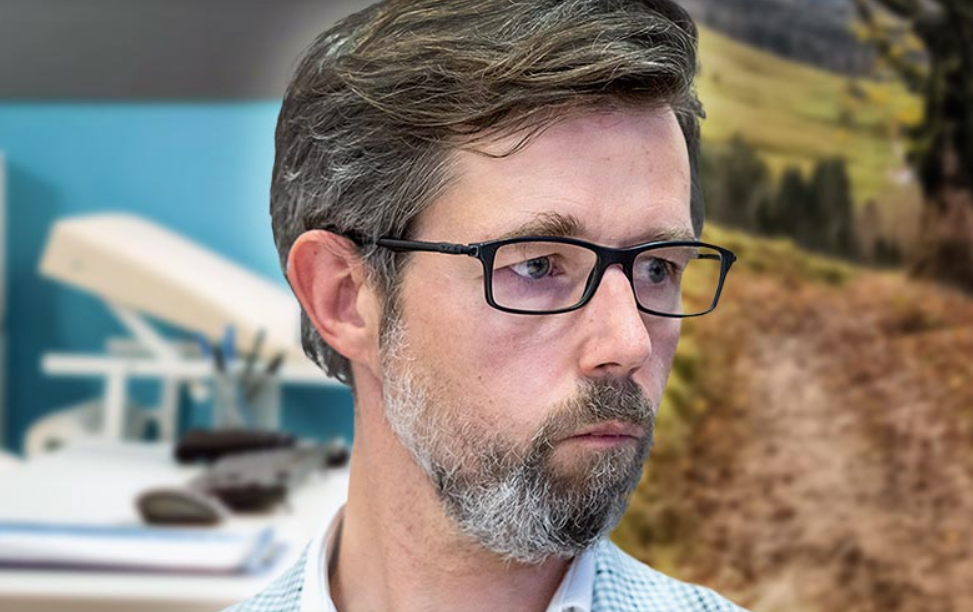“The 6,280,000 euros that will be distributed to politically selected (non-)governmental organisations is not only enough to finance 30 outpatient clinics or family medicine teams, but it is also enough to take care of 50,000 people at the primary level. And then they say that healthcare is a priority,” economist Dr Matej Lahovnik criticised the distribution of taxpayers’ money to NGOs.
Many of you may still remember the controversial 10-million-euro call for proposals for strengthening active citizenship and empowering NGOs, which resulted in the departure of former Minister Sanja Ajanović Hovnik when the news broke that 300 thousand euros had been allocated to an NGO half-owned by the Minister and now her mother, and co-owned by the Minister’s friend.
In mid-January, the new Minister of Public Administration, Franc Props, decided to cancel the controversial tender, which angered the NGOs that had also been allocated taxpayers’ funds. However, the NGOs did not have to wait long for the taxpayers’ funds to be reallocated. In relation to the call for tenders, which was already announced during Ajanović Hovnik’s term, the media outlet Planet TV reported on the distribution of 6.3 million euros for “strengthening the visibility and quality of regional hubs or networks in their field of activity, and thus the information, organisational development and capacity for advocacy and sustainable strengthening of NGOs.” More details on the call for tenders can be found (in Slovenian) here: https://www.gov.si/zbirke/javne-objave/javni-razpis-za-sofinanciranje-razvoja-podpornega-okolja-za-nvo-2023-2027/.
Most funding went to Forbici’s CNVOS
Taxpayers’ funds will be distributed to 14 NGOs, and the winner of the call for tenders is undoubtedly the umbrella network of Slovenian NGOs, the Centre of Non-Governmental Organisations of Slovenia (CNVOS). The director of CNVOS is Goran Forbici, who has been awarded more than one million euros in public funds (1.5 million euros, to be precise). Forbici, as the chairman of the Council of the national media outlet – Radio-Television Slovenia (RTVS), is considered by some in the public to be one of the most powerful people working to “purge the Janšaists” from the public RTVS to satisfy the Prime Minister, and thus many are not the least bit surprised by this news.
Slovenian Philanthropy received much less funding than CNVOS, namely, 659,475.94 euros. The Association for the Development of Human Resources and Social Programmes NOVUS will receive 458,999.29 euros, while more than 400 thousand euros will go to the PIP Institute, the Association for the Development of Voluntary Work, and the Nefiks Institute. Less than 400 thousand euros were allocated to the following associations: the Tri Institute, the Union of Sports Associations, the Pina Association, the Bit Planota Foundation, the Pomurje Foundation, the Association for the Development and Protection of Geoss, the Postojna Youth Centre and the Good Society Institute. The Ministry informed the press that four calls for tenders were published under the NGO Development Fund during the previous Minister’s term of office, with a total value of 26.8 million euros, while no calls for tenders have been published yet during Minister Props’ term of office.
How could the money have been spent more usefully?
“The money is going into this instead of the third development axis,” pointed out Janez Janša, the leader of the largest opposition party, in light of the recent distribution of taxpayers’ money. “The 6,280,000 euros that will be distributed to politically selected (non-)governmental organisations is not only enough to finance 30 outpatient clinics or family medicine teams, but it is also enough to take care of 50,000 people at the primary level. And then they say that healthcare is a priority,” stressed former Minister of the Economy, Dr Matej Lahovnik, in his response.
When the money was distributed, doctor Rok Ravnikar critically pointed out on the social network X that it is not right to compare the content of NGO programmes with the rest of the economic or non-economic sectors. However, he believes that it is right to “at least put the numbers in context when we talk glibly about millions.” According to Ravnikar, the 6.3 million euros represents “the annual cost of 30 family medicine clinics, which care for between 45,000 and 60,000 people throughout the year, including the salaries of 90 team members.”
“6.3 million euros is the annual (gross!) salary of 220 workers on the average Slovenian wage, or even 420 workers on the minimum wage. For the whole year,” Ravnikar pointed out, saying that “the money is obviously there, it’s just that the priorities are different – and the politicians are responsible for that.” “I hope they at least employ that many people …” he concluded.
The actions of the Golob government prove time and again what its real priorities are and that the accusations about how selected NGOs are the most important to it are by no means off the mark. The bills for helping them get elected in the latest national elections, it seems, have to be paid, and those who dare to raise this issue are often demonised as greedy and corrupt. The fact is that public money is being spent, and it is therefore quite right that the rationality, or the lack thereof, of the spending of money, should be pointed out at all times. Especially when it comes to tenders, the purpose of which is difficult to understand.
A. H.


